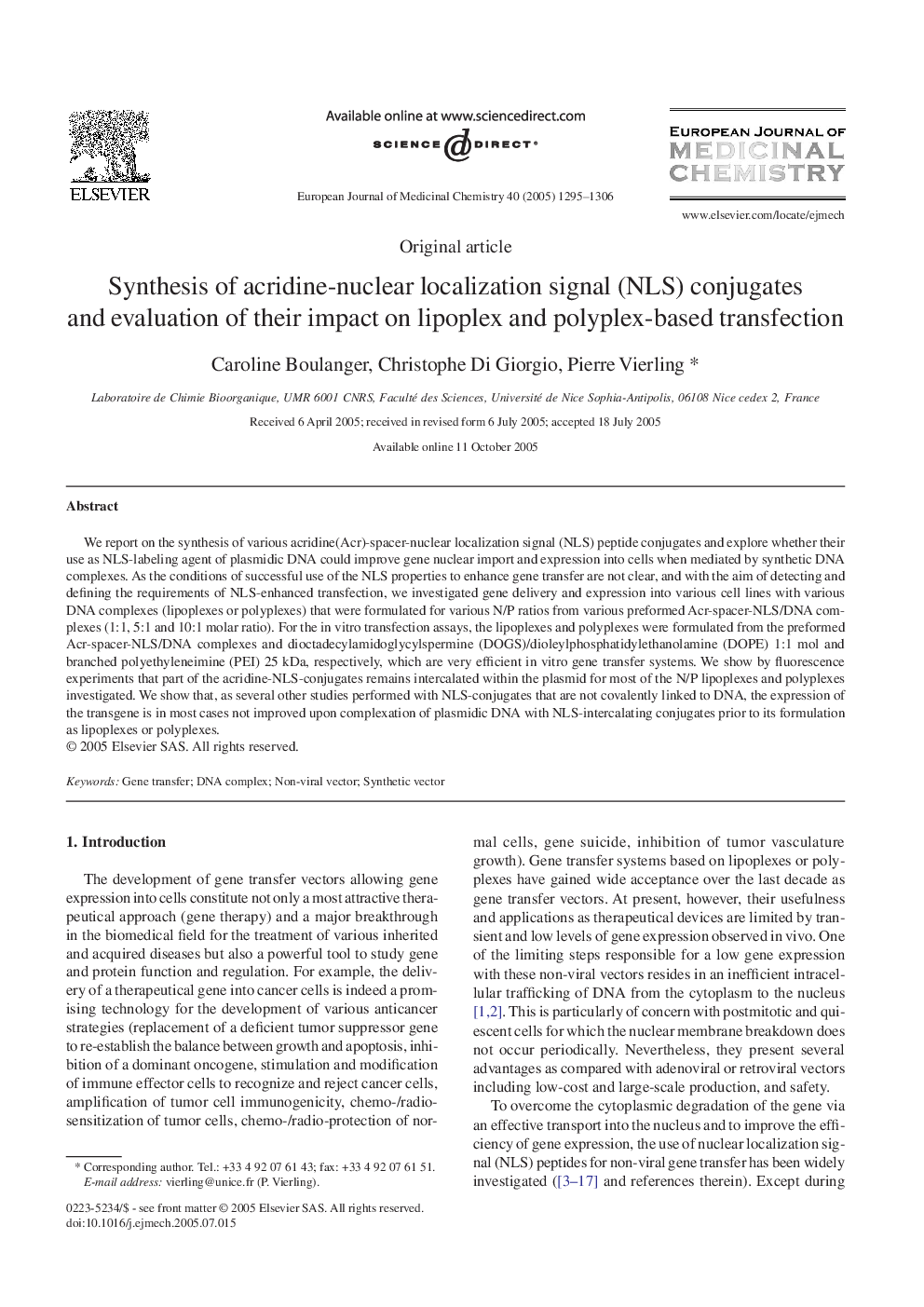| Article ID | Journal | Published Year | Pages | File Type |
|---|---|---|---|---|
| 9769159 | European Journal of Medicinal Chemistry | 2005 | 12 Pages |
Abstract
We report on the synthesis of various acridine(Acr)-spacer-nuclear localization signal (NLS) peptide conjugates and explore whether their use as NLS-labeling agent of plasmidic DNA could improve gene nuclear import and expression into cells when mediated by synthetic DNA complexes. As the conditions of successful use of the NLS properties to enhance gene transfer are not clear, and with the aim of detecting and defining the requirements of NLS-enhanced transfection, we investigated gene delivery and expression into various cell lines with various DNA complexes (lipoplexes or polyplexes) that were formulated for various N/P ratios from various preformed Acr-spacer-NLS/DNA complexes (1:1, 5:1 and 10:1 molar ratio). For the in vitro transfection assays, the lipoplexes and polyplexes were formulated from the preformed Acr-spacer-NLS/DNA complexes and dioctadecylamidoglycylspermine (DOGS)/dioleylphosphatidylethanolamine (DOPE) 1:1Â mol and branched polyethyleneimine (PEI) 25Â kDa, respectively, which are very efficient in vitro gene transfer systems. We show by fluorescence experiments that part of the acridine-NLS-conjugates remains intercalated within the plasmid for most of the N/P lipoplexes and polyplexes investigated. We show that, as several other studies performed with NLS-conjugates that are not covalently linked to DNA, the expression of the transgene is in most cases not improved upon complexation of plasmidic DNA with NLS-intercalating conjugates prior to its formulation as lipoplexes or polyplexes.
Related Topics
Physical Sciences and Engineering
Chemistry
Organic Chemistry
Authors
Caroline Boulanger, Christophe Di Giorgio, Pierre Vierling,
